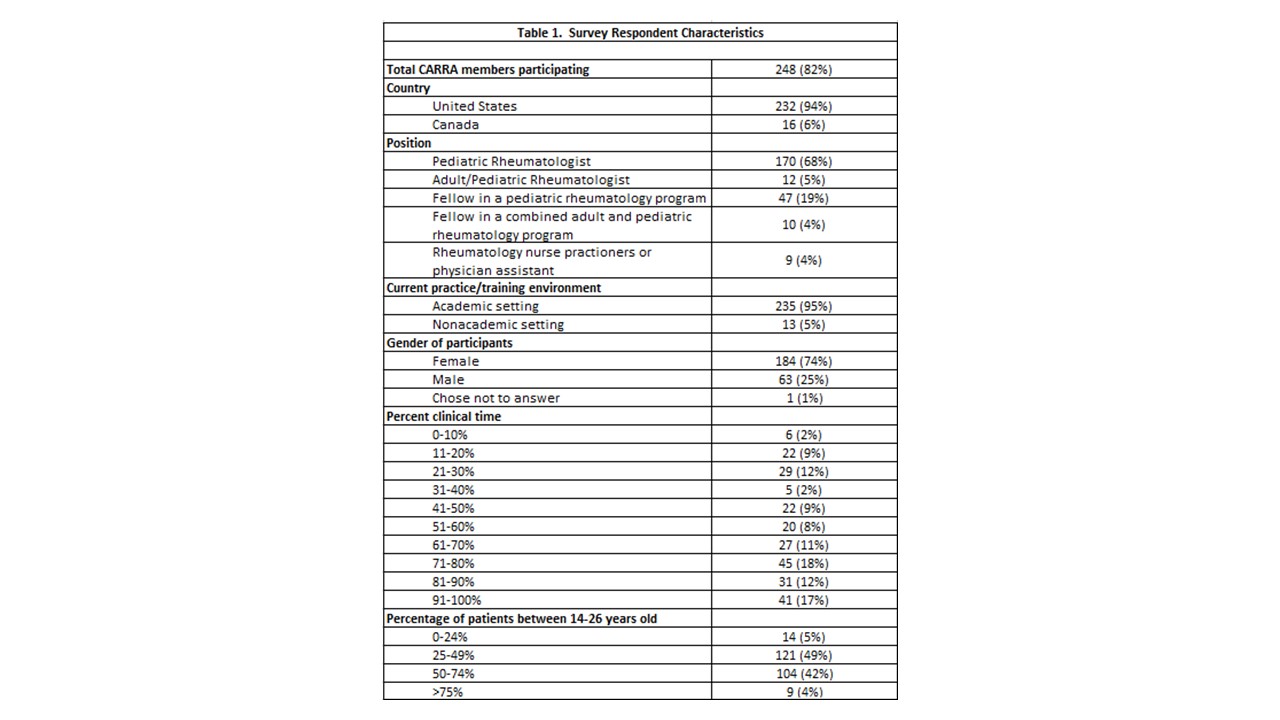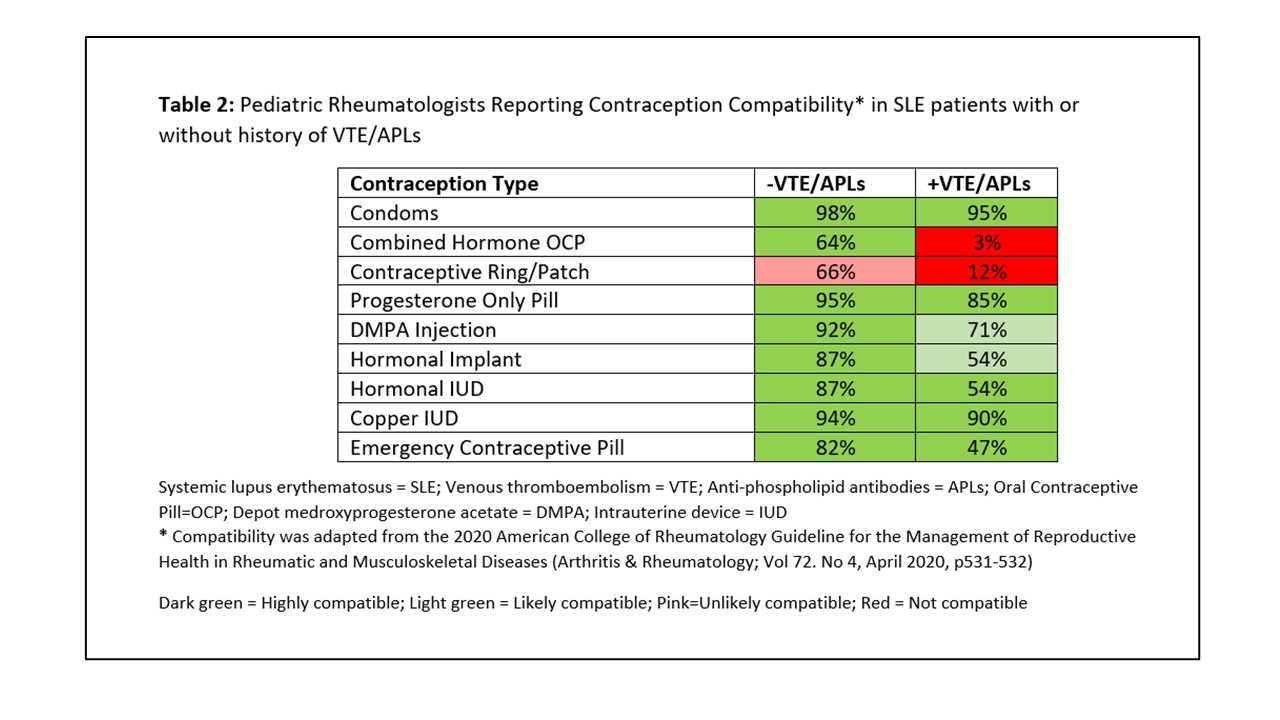Session Information
Date: Tuesday, November 9, 2021
Title: Pediatric Rheumatology – Clinical Poster III: Miscellaneous Rheumatic Disease (1614–1644)
Session Type: Poster Session D
Session Time: 8:30AM-10:30AM
Background/Purpose: Rheumatic diseases and their treatments present unique challenges to sexual and reproductive health (SRH) issues facing patients and clinicians. Despite this, literature in the adult population suggests SRH is often unaddressed by health care providers, and providers report gaps in knowledge in this area. We sought to understand pediatric rheumatology providers’ knowledge, needs, and practices regarding the SRH care of their patients.
Methods: An electronic survey was distributed to the Childhood Arthritis and Rheumatology Research Alliance (CARRA) providers in the fall of 2020. 248 CARRA members completed the 37-item online survey about SRH issues facing pediatric rheumatology providers.
Results: Survey response rate was 82%. Participants were mostly pediatric rheumatologists, female, practicing in the United States and affiliated with an academic hospital (Table 1). Fifty percent of respondents were in fellowship or less than 10 years out of training. Sixty-six percent reported more than 50% of their time devoted to clinical care. Over 90% surveyed felt it was within their scope to address SRH topics with their patients. Top three SRH concerns reported by clinicians: teratogenic medications, contraception, and long-term medication safety. Fertility and pregnancy were also of high importance, with 70% of respondents having at least one pregnant patient in their career, 4% having >15 pregnancies. Lack of time and knowledge were the most common reasons cited for not discussing SRH with patients. Only a minority of providers speak to patients alone or routinely address sexual activity.
The majority of those surveyed were able to identify key teratogens used in pediatric rheumatology, however some pregnancy-compatible medications were incorrectly identified as teratogenic (Figure 1). Estrogen-containing contraceptives were erroneously identified as inappropriate in those without antiphospholipid antibodies (APLs) (Table 2). Progestin-only methods were underrecognized as appropriate in those with positive APLs or thrombus history, with hormonal IUDs and implants the most improperly identified. Immunosuppression and nulliparity were appropriately not seen as barrier to long-acting reversible contraceptives. The effectiveness of various contraceptives was overestimated. Emergency contraception, an intervention with no disease restrictions, was not well-recognized as safe for those with SLE with negative or positive APLs (Table 2) Potential fertility sequelae plays a role in medication decisions, however methotrexate and mycophenolate were incorrectly identified as affecting fertility. Fertility preservation was rarely pursued for males or females.
Conclusion: Sexual and reproductive health is an area pediatric rheumatology providers feel is within their clinical purview, barred by time and knowledge. Knowledge gaps recognizing pregnancy compatible medications, appropriate contraception based on disease characteristics, contraception effectiveness, and medications effecting fertility were identified. Emergency contraception safety awareness was lacking. This survey highlights future opportunities for provider education in pediatric rheumatology SRH.
To cite this abstract in AMA style:
Hays K, Lavallee C, Huynh B, Ronis T, Edelheit B, Cook K, Mruk V, Edens C. Reproductive Health Knowledge Gaps, Needs, and Barriers Identified by Pediatric Rheumatology Providers [abstract]. Arthritis Rheumatol. 2021; 73 (suppl 9). https://acrabstracts.org/abstract/reproductive-health-knowledge-gaps-needs-and-barriers-identified-by-pediatric-rheumatology-providers/. Accessed .« Back to ACR Convergence 2021
ACR Meeting Abstracts - https://acrabstracts.org/abstract/reproductive-health-knowledge-gaps-needs-and-barriers-identified-by-pediatric-rheumatology-providers/



